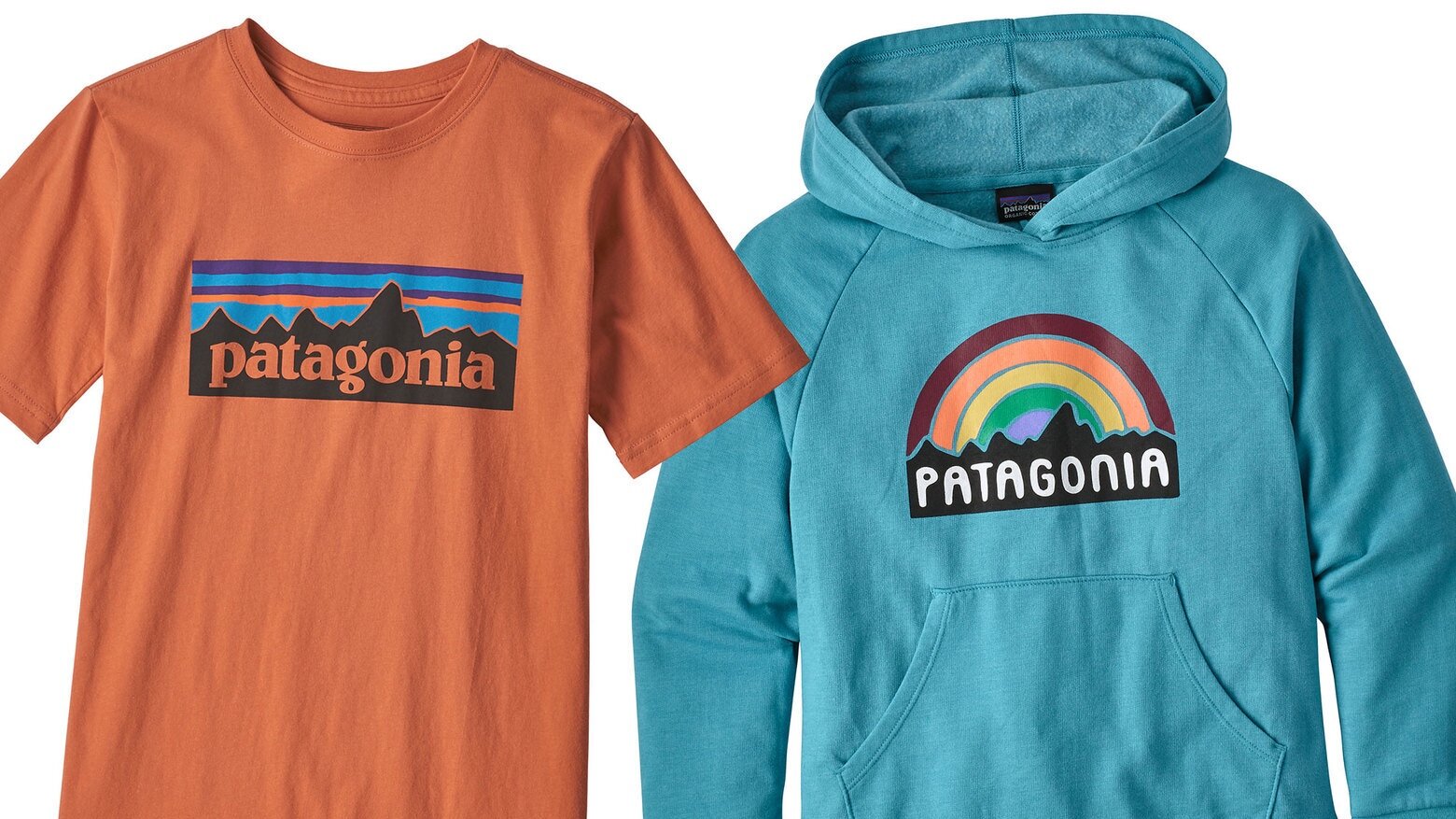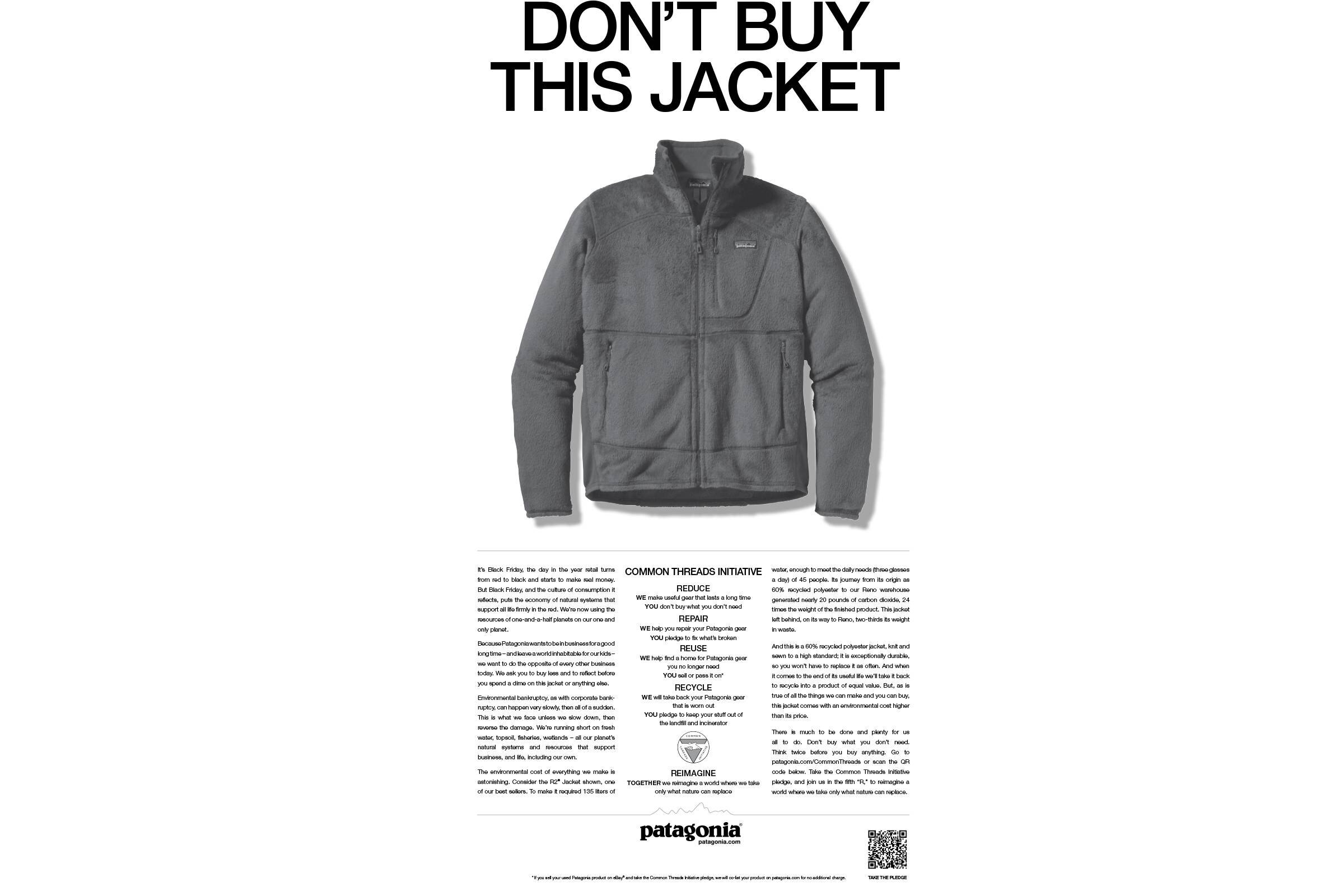Patagonia’s Strategy, 10 Times it Stood Out From the Pack
While many companies struggle to navigate a culture where more and more consumers are interested in social causes, Patagonia has already figured out how to lead. The apparel and outdoor gear retailer has activism in its DNA. Patagonia is not afraid to take a stand and has an uncanny ability for figuring out exactly what will capture the attention of consumers while at the same time reducing its impact on the environment. With Patagonia’s revenues surpassing $1 billion here are 10 ways the retailer’s strategy and actions have stood out, providing lessons for any company looking to make a difference while growing the bottom line.
1. In November of 2011 Patagonia ran a full-page ad in the New York Times encouraging consumers not to buy one of its best-selling products, a fleece jacket.
The ad outlined the impact the sweater had on the environment and encouraged consumers to think twice before buying merchandise from Patagonia. Here are a few excerpts from the ad:
“Because Patagonia wants to be in business for a good long time – and leave a world inhabitable for our kids – we want to do the opposite of every other business today. We ask you to buy less and to reflect before you spend a dime on this jacket or anything else.”
“The environmental cost of everything we make is astonishing. Consider the R2® Jacket shown, one of our best sellers. To make it required 135 liters of water, enough to meet the daily needs (three glasses a day) of 45 people. Its journey from its origin as 60% recycled polyester to our Reno warehouse generated nearly 20 pounds of carbon dioxide, 24 times the weight of the finished product.”
“But, as is true of all the things we can make and you can buy, this jacket comes with an environmental cost higher than its price.”
Instead of the ad deterring consumers they flocked to the Patagonia. In 2012, the year after the ad was placed Patagonia’s sales were up 30% reaching $543 million.
2. In the lead up to the 2020 presidential election in the United States Patagonia added a tag to its line of regenerative organic stand-up shorts that said: “vote the assholes out.” Speaking about the label Patagonia founder Yvon Chouinard said this: "it refers to politicians from any party who deny or disregard the climate crisis and ignore science."
The shorts quickly went viral on social media and the shorts sold out in short order.
3. Patagonia views itself as partly a profit generating business and part NGO. “People often ask, ‘are you a for-profit business or are you an NGO,’” says Patagonia CEO Ryan Gellert. “And the answer in my mind is yes; I think we’re some weird mashup of those two things. What we really are is a for-profit business, and we use the business to try to influence larger, more systemic issues.”
That philosophy was reflected in 2017 when Patagonia sued the United States government after President Donald Trump signed an executive order to reduce the amount of public lands in Utah and Nevada. Patagonia has "always viewed public lands as our special interest," said Corley Kenna a Patagonia spokesperson. “We have been fighting for these lands for decades, so that hunters, fishers, hikers and everyone else can use them." “If the president decides to usurp Congress’ authority and shrink the boundaries on his own, Patagonia will take legal action to defend our public lands,” said Rose Marcario Patagonia’s former CEO.
In an act of protest Patagonia also turned its website’s homepage black and replaced product listings with the words: “The President Stole Your Land.”
Do you like this content? If you do subscribe to our retail trends newsletter to get the latest retail insights & trends delivered to your inbox
4. Patagonia employees are empowered to get involved with important causes. For the last presidential election employees were able to take up to four paid days to work as volunteer poll workers. Employees were also encouraged to write letters or send text messages to low propensity voters. “Patagonia is doing our part to ensure this November’s [2020] elections are accessible for all eligible voters,” said Hilary Dessouky, Patagonia’s general counsel. “Already this election has been marred by misinformation about voting, roadblocks to accessible voting and threats to cut essential voting services like the US Postal Service, which allow people to vote safely and securely.”
5. Patagonia has been in the activism game for a long time. In 1990 Patagonia donated to Planned Parenthood, a move that irked Christian fundamentalists. When Patagonia’s phone lines lit up with angry people calling to protest the move Patagonia politely told them for each call that came in Patagonia would donate $5 more to Planned Parenthood. That put an end to those calls and sales kept on growing.
6. Despite all of its activism which may pit customers on different sides, Patagonia says it has not lost a significant amount of revenue as a result of its activism. “It’s worth losing a few customers — we always gain more when we take one of these positions,” says Patagonia spokesperson Corley Kenna.
Take Black Friday in 2016. It occurred shortly after President Donald Trump was elected. Patagonia decided to donate all of its sales on that day to various grass-roots environmental organizations. “Ordinarily, we would have done about $2.5 million worldwide,” says Vincent Stanley, Patagonia’s director of philosophy. But on that particular day, “we did $10 million — and about a third of the customers were new. So I think that if you define your values and you practice them consistently, which we have over time, I do think we’re making more friends than we’re losing by the stances we take.”
7. In 2012 Patagonia was the first company in California to sign up to become a B certified corporation. A B corporation among many things must: “have an explicit social or environmental mission, and a legally binding fiduciary responsibility to take into account the interests of workers, the community and the environment as well as its shareholders.”
8. Patagonia is also a leader in the sustainability movement with 87% of its products made from recycled materials. It is aiming to have 100% of its merchandise made from recycled or renewable products by 2025. Patagonia also cares about how products are made with 82% of its products sewn in Fair Trade Certified factories meaning that workers are paid a living wage.
9. Patagonia also has a resale platform called Worn Wear where customers can trade in their used Patagonia clothing and receive a credit towards future purchases at Patagonia. Used Patagonia merchandise is cleaned, repaired and then resold at wornwear.patagonia.com
10. While many organizations talk about sustainability, Patagonia always puts its money where its mouth is. Patagonia has donated 1% of its revenue since 1985 to causes that protect and restore the environment. So far it has donated over $140 million.



